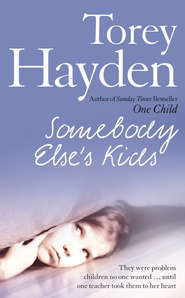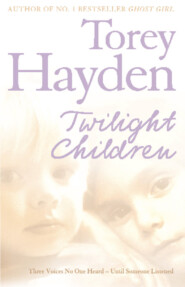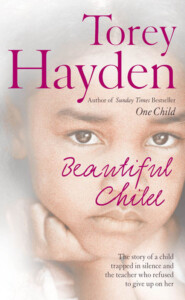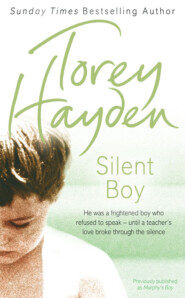По всем вопросам обращайтесь на: info@litportal.ru
(©) 2003-2024.
✖
The Sunflower Forest
Автор
Год написания книги
2018
Настройки чтения
Размер шрифта
Высота строк
Поля
‘She’s got pills for her back, Dad.’
He was still watching me. ‘Well, there’s no need for her to suffer with the cold when there are plenty of warmer places.’
‘It’s not the cold,’ I replied. ‘It’s the flowers.’
He pushed the lounger up into a sitting position. ‘What?’
‘I said, it’s the flowers. It’s not the cold or her back or anything else. It’s the stupid flowers. She wants to be somewhere with flowers. Even in January.’
My father didn’t say anything. It grew noticeably quiet, even with the music playing.
I studied him. My father couldn’t exactly be called a handsome man. He was of Irish descent, short and wiry, with masses of curly black hair, greying by his ears. His face had a well-lived-in look, especially around the eyes, as if he’d had a lifetime of bad nights’ sleep. But it was a cheerful face. He had a very ruddy complexion that gave him Santa Claus cheeks, and he was always betting Megs and me that we couldn’t look at him for five minutes without smiling. Neither of us could. Yet he was an unexpected choice to complement my mother’s rather awesome appearance.
‘It isn’t fair, you know,’ I said. ‘As soon as we really get settled somewhere, you guys want to up and leave. And frankly, Dad, I just don’t want to go anywhere right now. I’m a senior this year. I’m going to graduate and I want to do it here where I got some friends. I know kids here.’ I looked at him. ‘What I really want is to go to my senior prom. I want to get asked out by some guy and go on a date and be like every other girl in the senior class. I don’t want to be the only one not invited. The only one who doesn’t have anywhere to go. And if we move now, that’s what’s going to happen.’
He smiled gently and reached a hand over to touch me. ‘I know it’s been hard sometimes,’ he said, and I could tell from his voice that if it came to a showdown between Mama and me over moving, I wouldn’t stand a chance.
I sighed. Then once again, heavily. ‘I feel like I’m going to be a million years old before I even have a date. I feel like I’m probably going to be a toothless old granny, and when I get my first kiss, he’ll suck my dentures right out.’
He grinned.
‘It’s not funny, Dad.’
‘I know, sweetie,’ he said and chortled anyway.
‘Look, if Mama decides to move—’
‘Lesley, she has said absolutely nothing about it. You’re creating problems that don’t exist.’
‘If Mama decides to move, I want to stay with Brianna. I’ve already talked to her. I told her we might be moving, and she said she’d ask her mom to see if I could stay with them until the school year ends. It’d only be until June.’
‘You shouldn’t be talking to people about family matters, Les. This is strictly our personal business. I don’t think you ought to be sharing it with strangers.’
‘Daddy, Brianna’s no stranger. She’s my very best friend. Besides, I wasn’t specific. I was just sounding her out.’
‘The cold bothers your mother,’ he replied flatly. ‘If she wants to move, then I think we ought to move. We owe her that much.’
I said nothing. I put my head down and braced it between my hands. I gazed at the floor. The music coming from the radio was Rachmaninov’s. One of his concertos. I couldn’t remember which one.
‘Dad?’
‘Hmm?’
‘Do you think I’m ugly or anything? I mean, being really honest with me.’
His eyes widened. ‘Of course you’re not ugly, Lesley. What a thing to ask.’
‘I was just wondering.’ I listened to the remainder of the concerto and studied the pattern in the rug.
‘Look,’ he said, and his voice was gentle, ‘you still have plenty of time. Don’t put yourself in a state over it. Things’ll work out just fine.’
I raised my head. ‘How old were you when you first went out with a girl?’
‘Older than you are now. I was in the army.’
‘Didn’t you ever go out before that? When you were at home?’
‘The way your grandmother felt about things like that? Are you kidding? And way out there on the farm?’ He grinned. ‘I was lucky I even knew what girls were.’
‘Oh.’
‘So, see?’ He put his hand on my head, ‘Nature’ll take care of things. Don’t worry. Your time will come.’
Chapter Three (#ulink_e1372dbe-b89a-531b-8d65-9607dee431d0)
There were no tattered remnants of European aristocracy in my father’s background, no private tutors, no summer afternoons whiled away with garden parties and violin music. The son of an Irish immigrant, my father grew up on a pig farm on the vast plains of Illinois.
There were seven children. My dad was the fourth child, the second son. They weren’t a poor family, not dirt poor the way a lot of farm families were in the Depression. Not the way his father had been when he’d arrived, aged four, in steerage with his parents at Ellis Island. But my dad had recollections of just getting by. My favourite was the one about how he got into a fight at school because another boy had said his coat was a girl’s coat. It had been. His mother had made it over for him from one his sister Kathleen had outgrown. When he was recounting that episode, Dad would always end up grinning. Yes, he’d say, it had been a girl’s coat, but he sure wasn’t going to let Jacky Barnes say so.
The mainstay of their lives had been religion. Both my father’s parents were devout Catholics. All the children had had at least a few years at parochial school, even with the hardship of the Depression. One of his sisters had later joined an order of nuns devoted to helping the poor and still lived in Colombia. His younger brother taught theology at a university in Massachusetts.
When my father was thirteen, his father was killed in a farm accident. He had been mangled under the wreckage of an overturned tractor, and two men near by had helped free him and bring him down to the house. My dad had been alone at the time. He was hoeing in the vegetable garden and keeping an eye on the baby, who was about two. The men had come, carrying his dying father between them. Dad wasn’t one for telling stories. Unlike Mama, he couldn’t spin out a small incident into a captivating drama. But when he told this, you felt it. You saw the skinny kid in worn overalls and dusty bare feet. You saw the baby with his one-eyed teddy bear. Daddy’s mother had gone down to the neighbours’ and so he’d been alone at the house with his small brother and his maimed father and he didn’t know what to do. And every time he told us about it, you felt his horror.
So I never knew my grandfather. We didn’t even have a photograph of him. Once, Dad told us, a travelling photographer had stopped by the farm and offered to take a picture of all of them. His mother made the children wash and dress in their Sunday clothes. But when the photographer returned with the developed pictures, he wanted more money than he had said initially: they hadn’t said there were so many children, the photographer told them. A deal’s a deal, Dad’s father replied. In the end, the photographer was sent packing, photographs and all.
Grandma O’Malley, however, I knew well. When I was very little we’d gone to Illinois every summer to visit her. She lived in a little row house in a northern sector of Chicago not far from Uncle Paddy and Aunt Gretchen’s house, and I remember the cool, damp-smelling attic room where I slept. Later, when I was in grade school, I spent the month of July with her each year.
She was a tiny woman with white hair that she kept in a braided bun and skin stretched so tightly over her bones that her forearms and hands always reminded me of the legs of a bird. Being very much my mother’s daughter in respect of height and bone structure, I was bigger than Grandma O’Malley by the time I was ten.
I always looked forward to those visits when I was in grade school. What I actually loved most, I think, were the journeys to and from Chicago with my father. They were great adventures to me. We always went alone, just him and me, and left Mama at home to take care of Megan. All my Julys were bracketed with memories of Daddy and me sitting way in the back of the bus where my mother refused to sit because it made her carsick, of sharing Cokes and candy bars with him, of making wishes on white horses we saw in roadside pastures. We ate, in steamy, dimly lit bus depot cafés and slept in motels with saggy mattresses and chenille curtains at the windows or dozed in drowsy, diesel-scented darkness.
The visits themselves I anticipated rather less. There were plenty of good aspects, particularly after Megan was born, when I was relieved to discover that I could still go alone and Megan couldn’t come because she was too little for Grandma to take care of. Plus, my cousins lived just down the street from Grandma’s and were a constant source of familiar playmates each summer, which I longed for after our frequent moves. And Grandma was usually willing to spoil me a little. She had small gifts for me when I arrived. She gave me all the pennies from her change each night. Best of all, she would make me buttermilk pancakes for breakfast any morning I asked for them, which was something my mama would never do because she’d never adjusted to the idea of making a whole meal out of something sweet.
There were, however, less enjoyable aspects about going to see Grandma. From the moment I arrived with Daddy I was always aware of a subtle uneasiness, that kind of tension you can detect so readily when you’re young. And it permeated the entire stay. Regardless of the little surprises and treats Grandma had in store for me, the visits always left me anxious and on my guard.
From a very early age I knew what lay at the heart of the matter. Grandma O’Malley was devoutly Catholic and my mother was not only not Catholic but not even what could honestly be called Christian. Consequently, neither my sister nor I had been baptized, confirmed or even taken to church. This left my grandmother aghast.
Of course, Grandma O’Malley did her best to rectify what she considered an unthinkable situation. The moment my father had left, Grandma would call up the priest and have him come over to see me. She bought me Sunday dresses and patent-leather shoes and books of children’s Bible stories. She marched me off to Mass and catechism classes and vacation Bible school. During mealtimes she quizzed me about the life of Jesus. While we were doing the dishes, she would listen to me reciting the Bible verses she’d given me to memorize. And the summer I was nine, she promised to give me five dollars if I would go home and see that Daddy had Megan baptized.
With deadly regularity, my July visits would end with a terrible argument between my father and my grandmother. Dad’s first words to me as he arrived to take me home were invariably about church. Those questions doomed me. If I lied and said I’d had nothing to do with church while I was there, I got into trouble for not telling the truth. If I told the truth, he yelled at Grandma because he had expressly forbidden her to send me to Bible school or catechism classes or whatever and, of course, she always went ahead and did it anyway. Then they’d progress to his telling her that I was his child and if she didn’t like his rules then I wasn’t going to be allowed to come again, and to her telling him that she was not about to have any grandchild of hers burning in Hell. Within moments they’d be arguing about Mama.
Grandma knew Mama’s views on religion. It was impossible not to. If you knew Mama, you knew her views. My mother was fanatically opposed to religion in any form of the word. It was because of the things she had seen in the war, she always said, and because of the way she saw religious people react. She said they knew. She said a lot of people knew – the foreign governments, the people in high places, even a lot of ordinary people. She said they knew of the various kinds of terrible suffering that was tolerated in Germany. And she said they still went home at night and had their suppers and said their prayers and went to bed. They all thought of themselves as good Christians when they were in church on Sunday. They thought they lived in Christian nations. But what kind of teaching was that? Where was the Pope when the Jews were in Auschwitz? Where were the nuns and the priests and the clergymen and all the good, righteous Christians in Congress and the world parliaments, who could have helped, who could have passed laws to let in more refugees, who could have provided more routes of escape or, more importantly, who could have stopped what was happening altogether? Mama always maintained it could have been stopped. If everyone had tried. Together, the Christians, the churches, the Pope, all of them, they could have formed a voice that no leader, not even Hitler, could have ignored. But they hadn’t. Even if it wasn’t conscious, she said, they had chosen not to help. And my mama had no use whatsoever for the doctrines that had allowed so many to turn their backs so easily on all that suffering.
Grandma, for her part, had no use for my mama. I don’t think it was so much Mama’s personal atheism, because I don’t think it mattered a whole lot to Grandma what became of Mama’s eternal soul. Even though she never said so, I always suspected that Grandma felt Hell would probably suit Mama just fine. But what did matter to her was that Mama had taken my father away from the Church. And with him, Megan and me.
Despite my father’s threats about keeping me home, I went back to Grandma’s every July until she died, the year I was thirteen. Almost all I knew about my father’s youth came from those summers.
I think my dad, a quiet and undistinctive boy from the sound of things, might have escaped notice in the rough-and-tumble anonymity of such a large family, if it hadn’t been for his poor health: he had suffered a mild case of polio as an infant and later, scarlet fever, and these had left him with what Grandma called ‘a weakness of the chest’. Consequently, he had been sick a lot, often seriously, and much of his childhood was marked by long periods of isolation and convalescence. Because of these, he’d grown into a shy, introverted boy, not bookish, the way his brother Colin was, but just self-absorbed. Grandma said she’d never been much worried by that. With the casual certainty about destiny that is so common in devoutly religious families, it was assumed my father would become a priest, because he was the second son and that’s what second sons did. So Grandma was comforted by the knowledge that he was not inclined toward fast cars, parties and the high life, the way Paddy, Kip and Mick were.











